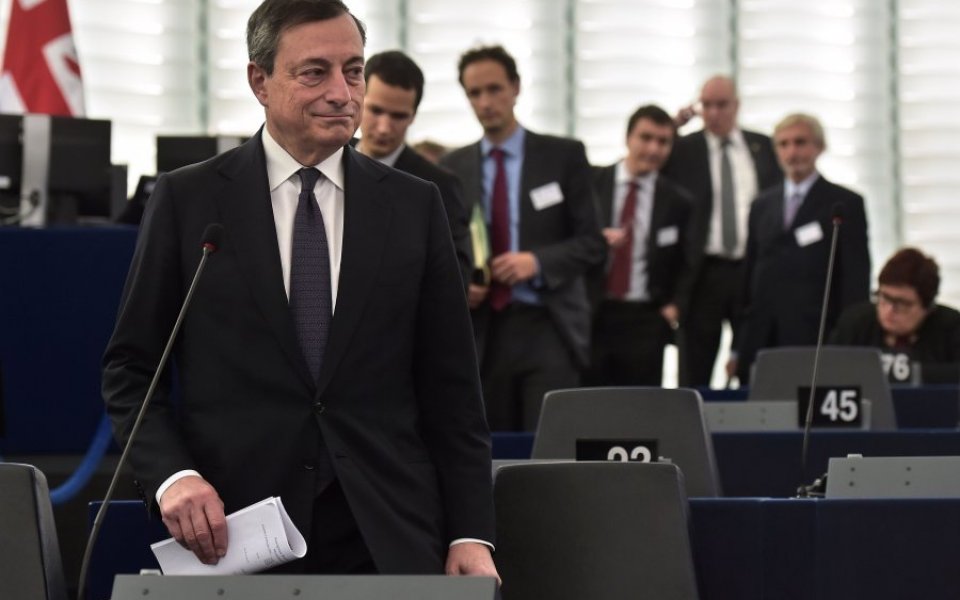Mario Draghi says ECB is “ready to do its part” on economy as he tries to dampen fears over health of European banks

European Central Bank (ECB) chief Mario Draghi has signalled that further monetary policy easing is likely in March.
"A general deterioration in market sentiment has taken root and has gathered pace over the last week," he told European Parliament today.
"Activity and trade data have been weaker than expected, turbulence in financial markets has intensified and commodity prices have declined further."
Read more: What a week: Over $1 trillion wiped off global stock markets
"Slowing growth in emerging market economies is a focal point for this uncertainty."
Draghi added:
The ECB is ready to do its part.
As we announced at the end of our last monetary policy meeting in January, the Governing Council will review and possibly reconsider the monetary policy stance in early March.
Draghi also tried to pour cold water on fears that the European banking system was in serious trouble after a plunge in share prices this year.
"The sharp fall in bank equity prices reflected the sector’s higher sensitivity to a weaker-than-expected economic outlook; it also reflected fears that some parts of the banking sector were exposed to the higher risks in commodity-producing sectors," he said.
"We have to acknowledge that the regulatory overhaul since the start of the crisis has laid the foundations for durably increasing the resilience not only of individual institutions but also of the financial system as a whole."
Economists expect the interest rate on deposits kept at the ECB to be cut to minus 0.4 per cent from minus 0.3 per cent. There is also a possibility that the €60bn (£46bn) a month asset purchase programme could be expanded.
Read more: Euro plummets as Mario Draghi opens the door for more easing in March
Negative interest rates have come under fire for hitting bank profits and contracting lending. Ben May, an economist at Oxford Economics, believes the ECB may try to get around this by only applying negative interest rates to a slice of deposits kept at the central bank.
"A growing concern is that the benefits from pushing the deposit rate deeper into negative territory may be offset by a bigger hit on banks’ profits, as the latter could ultimately prompt a tightening in credit conditions," he said.
"In a bid to circumvent this, we expect the ECB to adopt a tiered system for bank deposits, by charging a less negative interest rate for a certain share of banks’ deposits. In effect, this will reduce the deposit rate ‘tax’ that banks pay to the ECB."